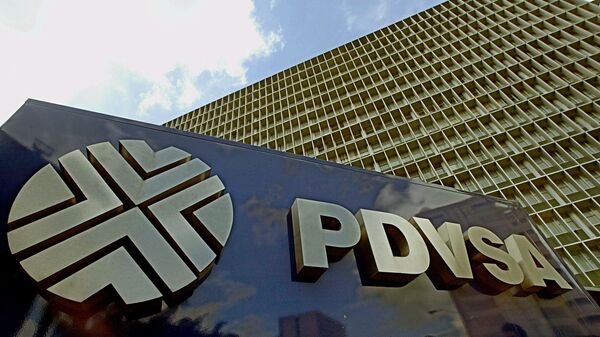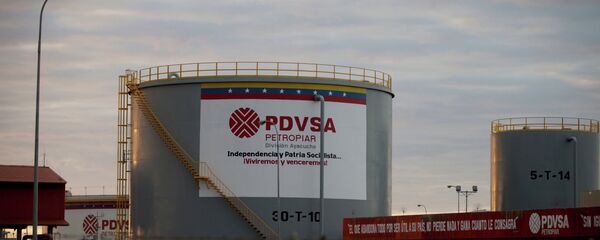Earlier in the day, Reuters reported that Gazprombank had frozen PDVSA's accounts and suspend its transactions so as to reduce possible risks associated with US sanctions.
"PDVSA refutes malicious reports, the purpose of which is to mislead the Venezuelan people, this is a lie," the company said on Twitter, posting screenshots of reports about the freezing of its accounts.
🗣#FakeNews #PDVSA desmiente informaciones mal intencionadas que pretenden confundir al pueblo venezolano, es #FALSO pic.twitter.com/Q6yxwq2Gt4
— PDVSA (@PDVSA) February 17, 2019
"PDVSA denies the media and its owners the right to violate our main oil industry, this [accusation] is a lie," another twit says
🗣#FakeNews #PDVSA desmiente a los medios de comunicación y operadores de la Derecha que pretende vulnerar nuestra principal Industra Petrolera, es #FALSO pic.twitter.com/SlzNVvAmwG
— PDVSA (@PDVSA) February 17, 2019
Gazprombank has as yet not commented on the Reuters report.
READ MORE: Venezuelan Supreme Court Annuls Opposition's PDVSA, Citgo Board Appointments
On January 28, the United States blocked $7 billion in PDVSA assets in its jurisdiction and imposed a ban on deals with the entity as part of an effort to facilitate a power transfer in Caracas. US Treasury Secretary Steven Mnuchin claimed to reporters that by blocking PDVSA assets the US was taking care of the company "in the interests of the Venezuelan people".
On 23 January, the political crisis in Venezuela took a new turn when the speaker of the opposition-led Venezuelan National Assembly, Juan Guaido, declared himself interim president. Guaido's declaration was almost immediately recognized by the United States and some of its allies. EU member states were expected to issue a joint statement recognizing Guaido, but Italy vetoed the motion, according to a Sputnik source.
Russia, along with China, Mexico, Turkey, Uruguay and several other countries, has voiced support for Nicolas Maduro as the legitimate president of Venezuela.



